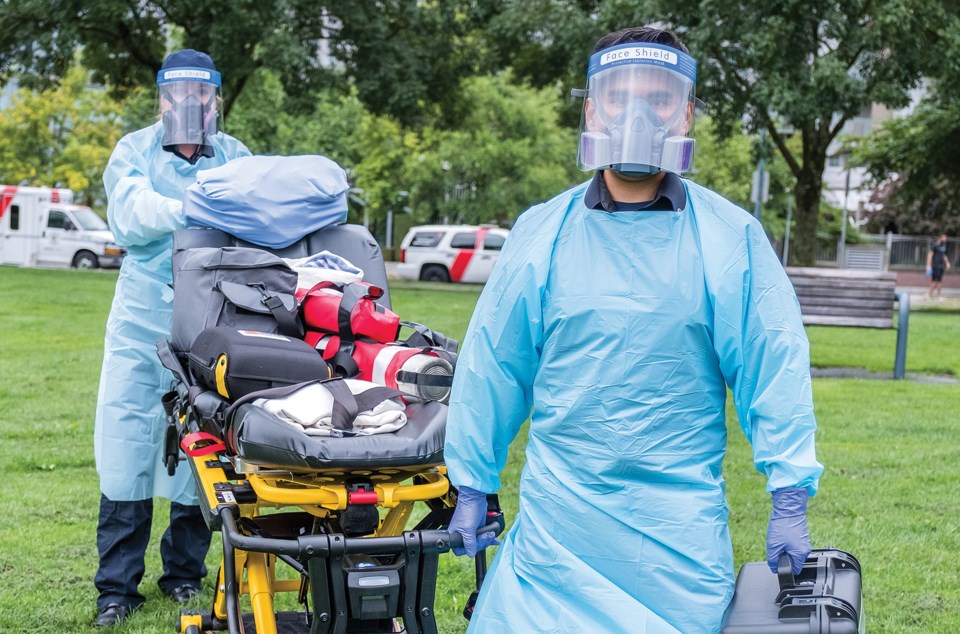Editor's Note: In our March 31 print edition we pay tribute to the city's first responders as we pass the two-year anniversary of the COVID-19 pandemic.
We have been welcomed back to large events. Face masks are now optional in public places and travel restrictions are going to be eased further this week. Yet, two years into the pandemic, little has changed for B.C. paramedics.
They continue to attend calls wearing PPE (personal protection equipment) from head-to-toe, depending on the situation they are walking in to. Communicating with a patient or colleague through a respirator is a challenge, never mind trying to carry out duties in the additional gear.
Ladner resident Brian Twaites is a 35-year veteran with B.C. Emergency Health Services (BCEHS). As an advanced life support paramedic he is attending to calls throughout Metro Vancouver including his hometown.
“The last two years have been a real drain on health care workers in general, first responders and the paramedics. It’s been very hard physically and mentally,” said Twaites. “We work in an evidence based practice world and it comes down to the science. We adhere by the science and if they’re saying the best practice for us to do at this time is to remain in the protective gear, then that’s what we are going to do.
“Communicating with a respirator on is definitely a challenge. If you’re running a cardiac arrest, communication is very important and when people can’t hear you asking for stuff, you have to repeat yourself five times. Then when you get into the hospital, the hospital staff is trying to understand what you’re saying through the respirator. You go home with a very sore throat and a hoarse voice at the end of the day.
“We don’t see an end light for us just yet due to the science, but we’re all hoping it’s coming soon. I think it’s important that the public realize, especially now that restrictions have eased, that when we pull up to a residence or to a call, and it takes us another minute or so, it’s because we still have to put on all this protective gear.”
Twaites’ other role with BCEHS as a paramedic specialist is working out of its communication centre in Vancouver. He serves as a clinic resource for paramedics around the province and the role was particularly invaluable during the early weeks of the pandemic.
“Part of our specialty is we’re trained with high risk hazards and infectious disease, so we are doing a lot of clinical consulting with paramedics prior to even going into a call. When COVID started, we didn’t even know what we were dealing with,” Twaites continued.
“At one point, we were actually previewing an emergency call that would come in. The crew would already be dispatched and we would have to review the call to decide about the safety parameters for the crews because of the infectious process we were dealing with.
“Even now we’re still in the middle of an opioid crisis. And that’s an example of one of those calls where we should be in full protective gear when we are dealing with an unconscious overdose that we’re trying to resuscitate.”



